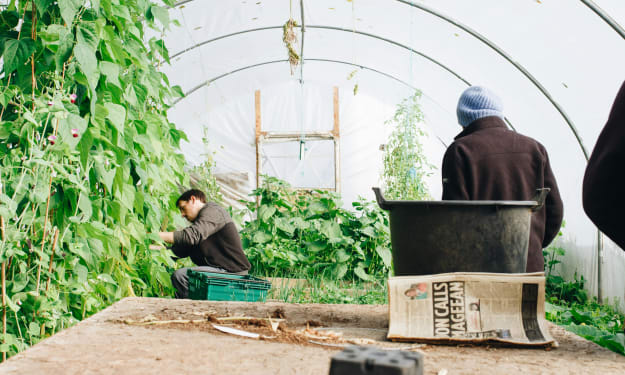Midges in Scotland
Impacts on Camping and Methods of Control

Scotland's breath-taking landscapes and outdoor opportunities attract numerous camping enthusiasts every year. However, one unavoidable challenge for campers in Scotland is the presence of midges, small flying insects notorious for their nuisance and irritation. This report aims to explore the impact of midges on camping experiences, discuss the reasons behind their prevalence in Scotland, and present effective methods for controlling midge populations to enhance camping enjoyment.
1. Understanding Midges
Midges, specifically the Culicoides impunctatus species, are tiny flying insects known for their propensity to bite humans and animals. Scotland's wet and humid climate, along with its vast areas of standing water and vegetation, create ideal breeding grounds for midges. These insects are most active during the summer months, particularly from May to September, making camping during this period particularly challenging.
2. Impacts on Camping
The presence of midges significantly affects the camping experience in Scotland. Their bites can cause discomfort, itchiness, and allergic reactions in some individuals. The persistent buzzing and swarming of midges can also be an annoyance, disrupting outdoor activities and peaceful evenings around the campfire. Midges can cause sleep disturbances, leading to fatigue and a less enjoyable camping experience. Moreover, their presence can discourage potential campers, affecting tourism and local economies.
3. Methods of Control
To enhance camping enjoyment and mitigate the impact of midges, various methods of control can be employed. While it is challenging to completely eradicate midges, these techniques aim to reduce their population and minimize their nuisance:
a) Repellents: Applying insect repellents containing DEET or picaridin on exposed skin can deter midges from biting. Clothing treated with permethrin can also provide additional protection. It is essential to follow instructions and reapply repellents as necessary.
b) Protective Clothing: Wearing long-sleeved shirts, long pants, and socks can help minimize skin exposure, making it harder for midges to bite. Additionally, using head nets and gloves can provide added protection, particularly in areas with dense midge populations.
c) Campsite Selection: Choosing campsites away from damp areas, standing water, and dense vegetation can reduce midge encounters. Camping at higher altitudes or in open, breezy locations can also help, as midges are less prevalent in windy conditions.
d) Smoke and Fire: Burning specific types of wood or using smoke-generating devices, such as citronella candles or coils, can help repel midges. Smoke disorients and drives them away, creating a protective barrier around the campsite.
e) Midge Nets: Using fine-meshed midge nets over windows, doors, and tents can prevent midges from entering these spaces while allowing ventilation. Investing in tents with integrated mosquito/midge nets can provide additional protection.
f) Natural Remedies: Some natural remedies, such as applying essential oils like eucalyptus, lavender, or tea tree oil, may offer temporary relief from midge bites. However, their effectiveness varies, and further research is needed to establish their efficacy.
g) Weather Conditions: Planning camping trips during drier and cooler periods, such as early spring or late autumn, can help reduce midge activity. Midges are less active during these times, making camping more enjoyable.
Midges undoubtedly pose a challenge for campers in Scotland, impacting their outdoor experiences. However, by understanding the behaviour of midges and employing effective control methods, campers can mitigate their nuisance and enjoy camping in the stunning Scottish landscapes. Combining measures such as repellents,
About the Creator
Jacqueline Leigh
Jacqueline Leigh: down-to-earth holistic therapist & author. "A Dieter's Dilemma" inspires & guides weight loss struggles. Embracing patience & self-love, she empowers lasting change, guiding to a balanced, life. #Health #Wellness #Author
Enjoyed the story? Support the Creator.
Subscribe for free to receive all their stories in your feed. You could also pledge your support or give them a one-off tip, letting them know you appreciate their work.






Comments
There are no comments for this story
Be the first to respond and start the conversation.